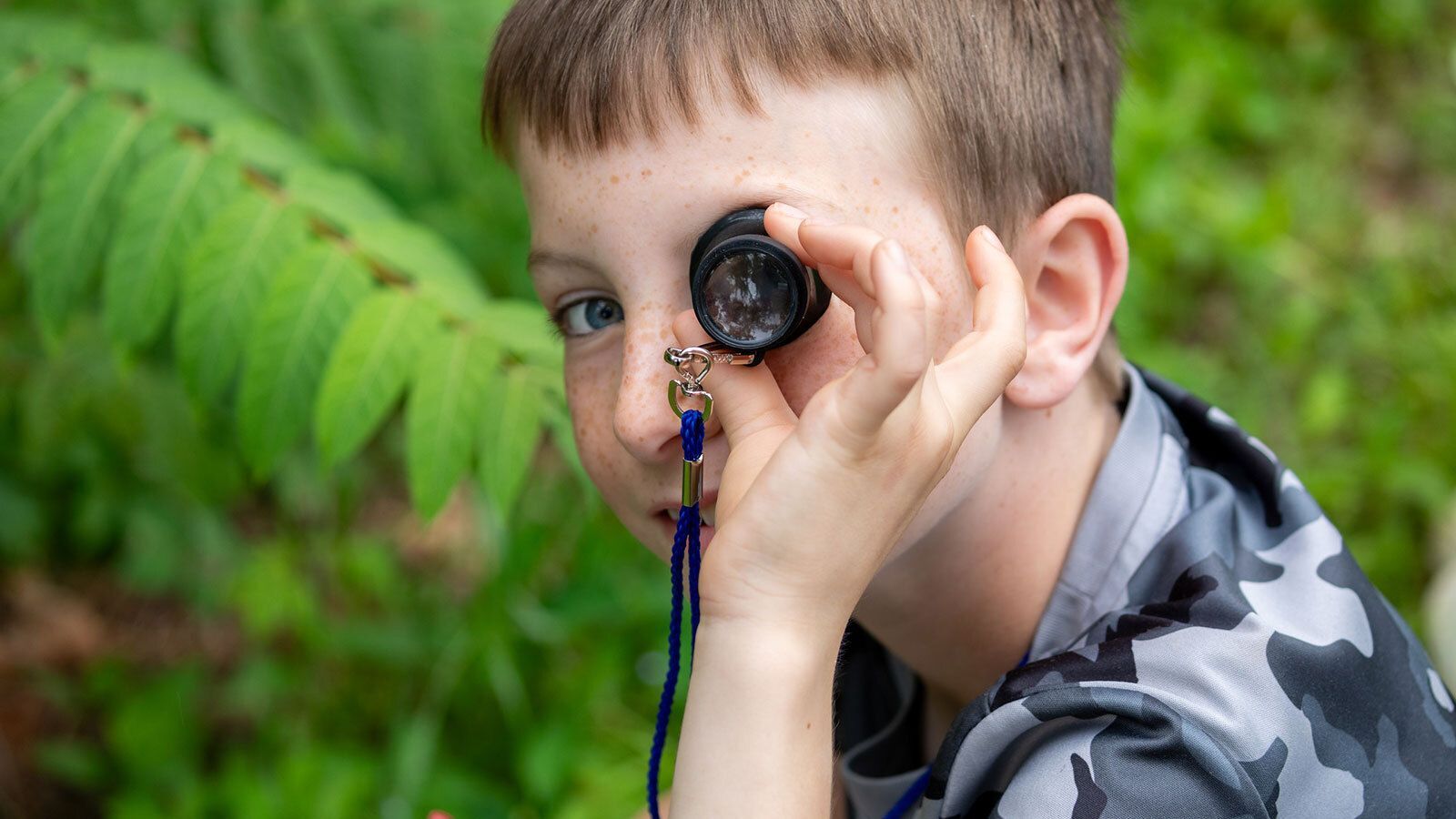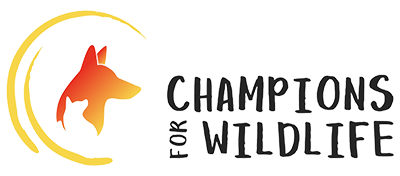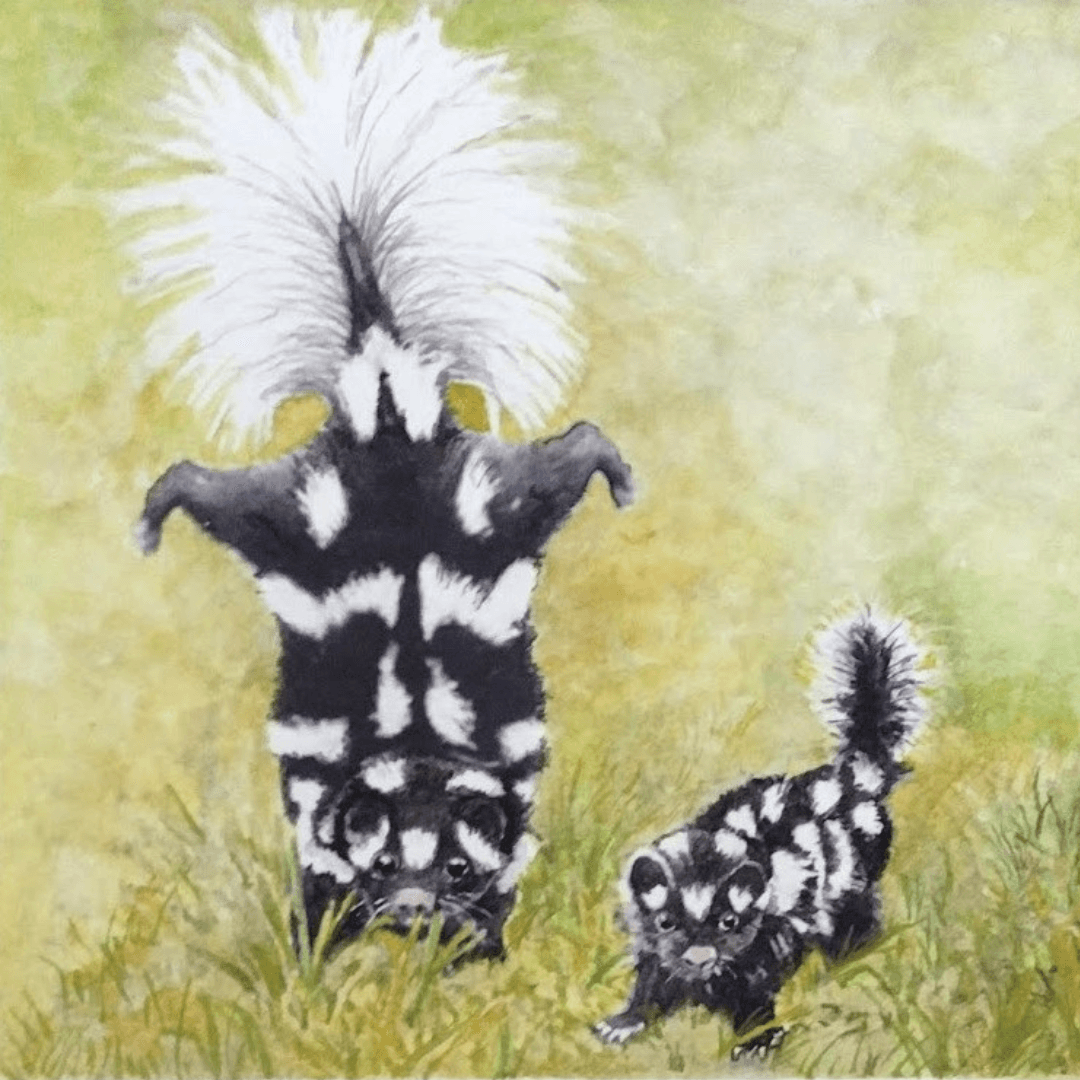These mammals are best known for their smell, and if you have ever smelled a skunk then you know why their scent makes them famous!
Skunks have to be one of the most misunderstood animals on the planet. They smell awful yet are so beneficial to our yards. Plus they are super cute! Let's learn more about these wonderful backyard animals.
Since they are nocturnal (coming out at night), you will rarely see one during the day, but they live all over North and South America.
When you smell a skunk, you know it! The skunk sprays musk from 2 anal glands on its backside, and babies can produce a foul smell even before their eyes are open. Now that is cool!
Before a skunk sprays, it gives you a fair warning. Stomping its feet on the ground and hissing is meant to deter you from coming closer. Spotted skunks even do a handstand trying to get your attention. If you see stomping, hissing or a handstand, move away or else…
The last thing the skunk wants to do is spray you, this is because it takes up to 10 days for their body to generate more musk, and in the meantime they are defenseless.
If you see a skunk here in western North Carolina, it is most likely a striped skunk. However, we are home to the endangered eastern spotted skunk as well, but they are very rare to see.
These cool animals don’t wander far from where they were born, generally less than 2 miles. They need water so look for them around ponds or other water sources at night.
If you see one in a tree, how do you know what kind it is? Well, it will be an eastern spotted skunk since only they can climb.
Their stripes are meant to deter predators. You only need to tangle with a skunk once to remember exactly what they look like with their bold black and white markings.
Why are skunks so important??
By eating insects, moles, and grubs that feast on your prized plants, they provide excellent pest control for your yard. They are particularly fond of Japanese beetles, cutworms, and hornworms, all of which damage vegetables and flowers. But best of all, they love yellowjackets and can destroy a nest overnight—perfect!
Of course, they may dig holes while searching for moles, grubs, and yellowjackets, but consider those holes as free soil aeration.
They also eat small rodents, helping keep the mice population in check. And since they are immune to snake venom, they even eat poisonous snakes. What’s not to love!
What is harmful to skunks?
With terrible eyesight, they don’t see fast-moving vehicles very well. Our cars and trucks are deadly to them when they are crossing the road.
Some birds of prey, like the Great Horned Owl, don’t smell very well and would love to have a skunk for dinner.
The other big threat is our misunderstanding of them. Since skunks do carry rabies, we often fear them. But you must get bitten by a rabid skunk to get rabies. Getting sprayed just makes you smell terrible, but won’t give you rabies.
How can we help skunks?
With an average lifespan of only 2-4 years in the wild, we can help them by slowing our cars down, especially at twilight and at night.
Spread the word of the coolness and importance of skunks, especially the eastern spotted skunk.
Because of their limited eyesight, they can fall into uncovered window wells or empty pools.
Help them by covering the holes or if you see a skunk in distress, call your local wildlife rehabilitator. In western North Carolina call Appalachian Wildlife Refuge, an animal rescue organization, for help.


